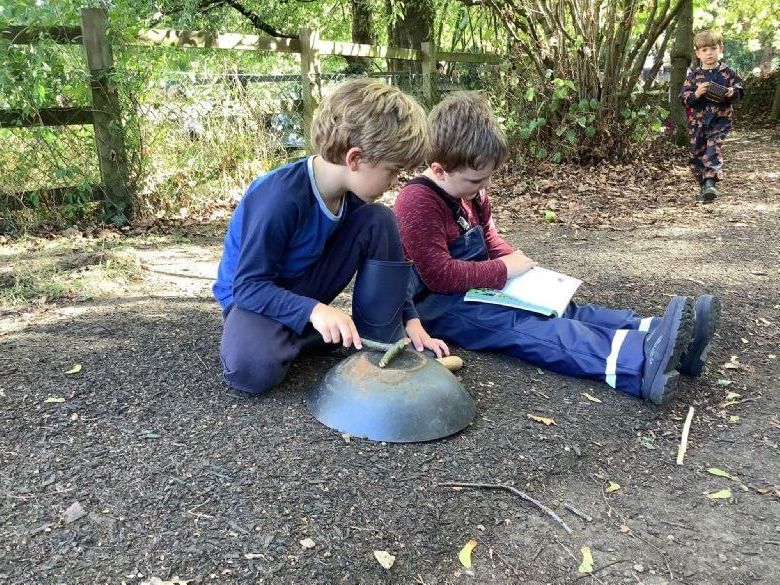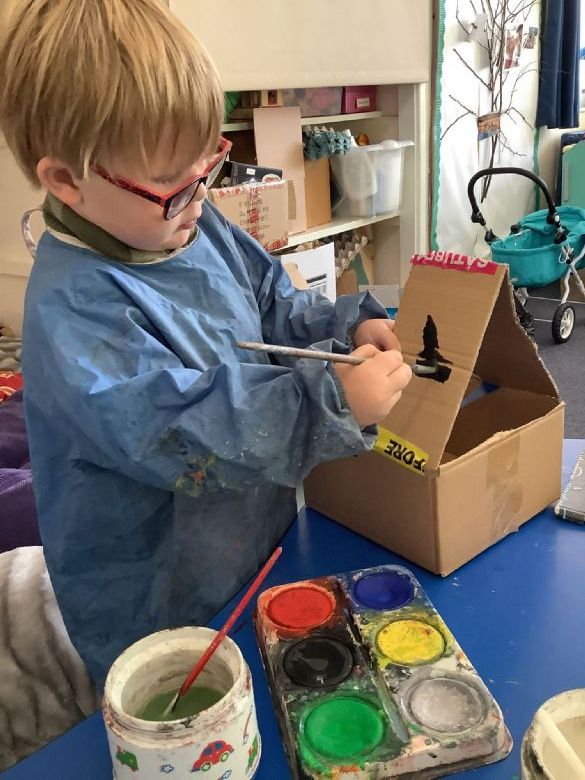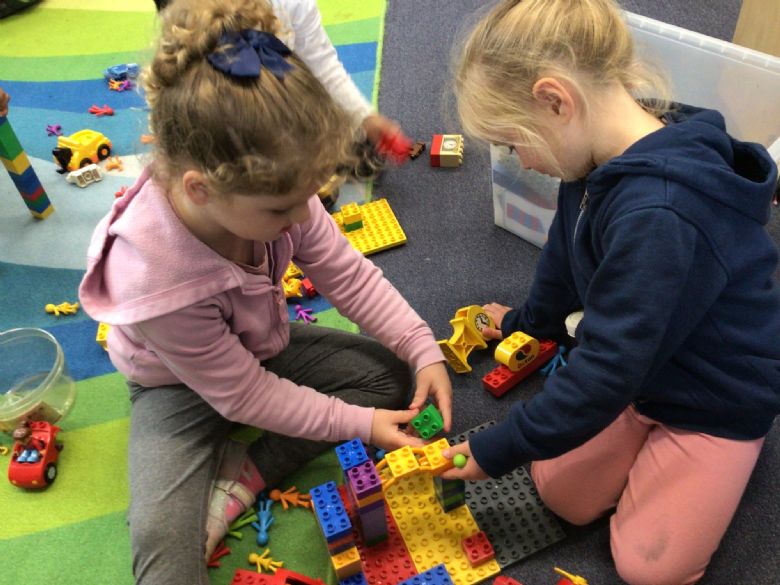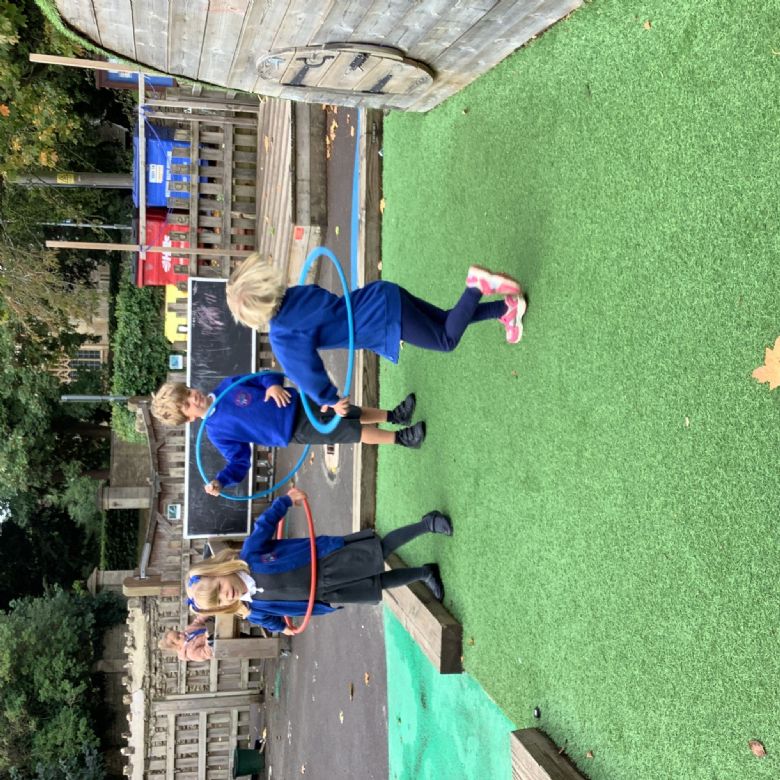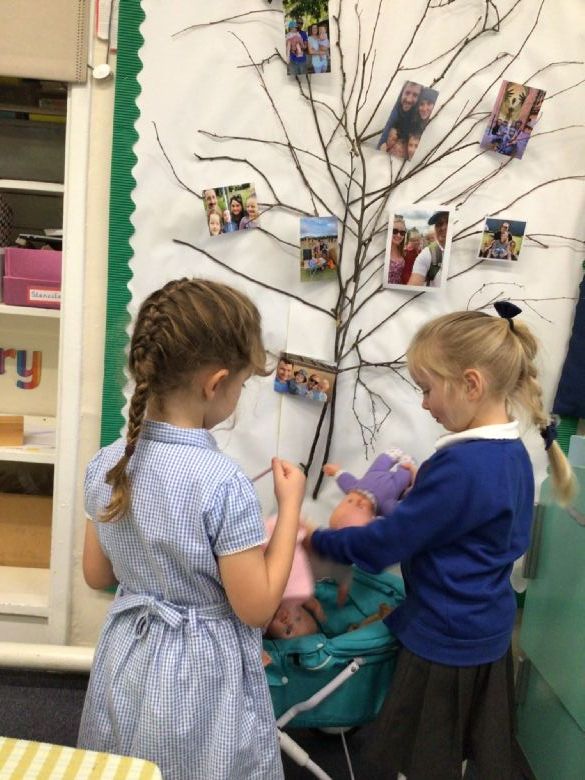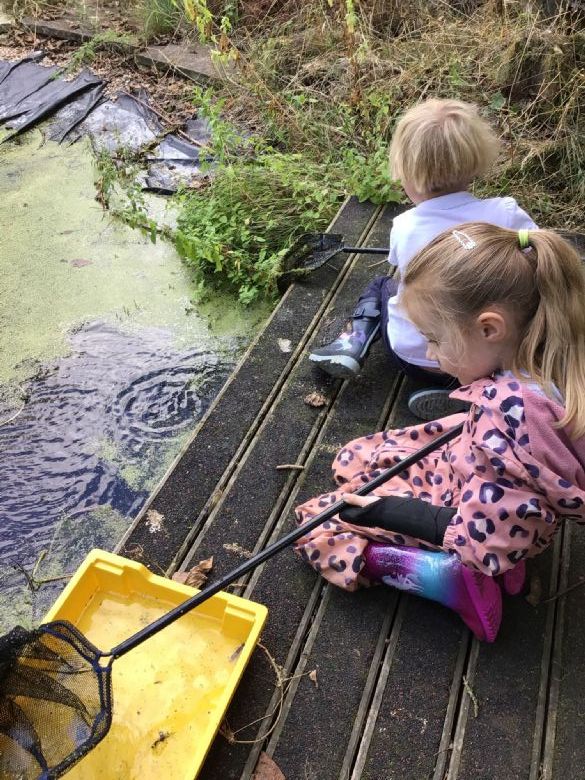Early Years Foundation Stage
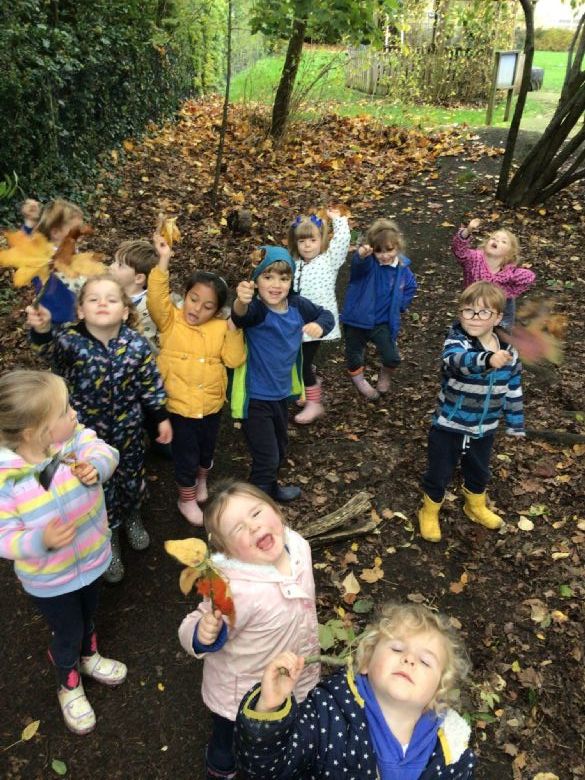
Darling Class comprises Nursery and Reception and follows the Early Year Foundation Stage Curriculum (EYFS).
At Stanton St Quintin we believe in giving each child the best possible start to school life and working in close partnership with children's families ensure that each child reaches their potential.
The EYFS Curriculum at Stanton St Quintin responds to individual needs and interests to ensure that children are immersed in a fun, creative and enabling environment that inspires children to explore and investigate their world.
Children in Reception have daily Maths and Phonics sessions, time to access the continuous provision to explore their own thoughts and ideas as well as weekly Forest School sessions.
Within the EYFS Curriculum, there are seven areas of learning and development (three prime and four specific), all important and inter-connected.
The three prime areas are:
- Communication and language
- Physical development
- Personal, social and emotional development
The four specific areas of development are:
- Literacy
- Mathematics
- Understanding the World
- Expressive Arts and Design
It is our intention that these areas of development are taught in meaningful and stimulating ways that instil in children a life-long passion for learning and joy.
Communication and Language
CLICK HERE for our Skills Progression in Communication and Language
The development of children's spoken language underpins all areas of children's learning and development. Consequently, interacting with children and developing their language and vocabulary lies at the heart of our curriculum.
Children are exposed to a wide range of stories and texts, brought to life through role-play, songs and actions. Children are given rich experiences and opportunities to listen and follow instructions, use and embed new vocabulary and express their thoughts and feelings.
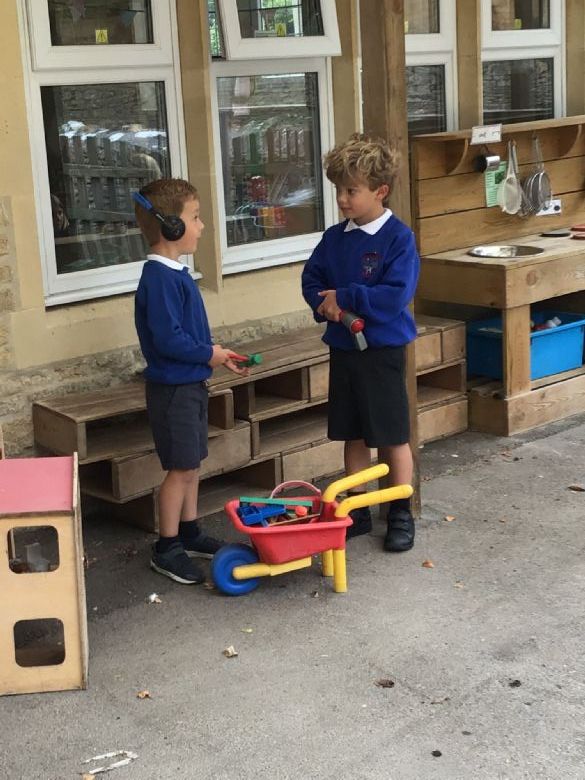
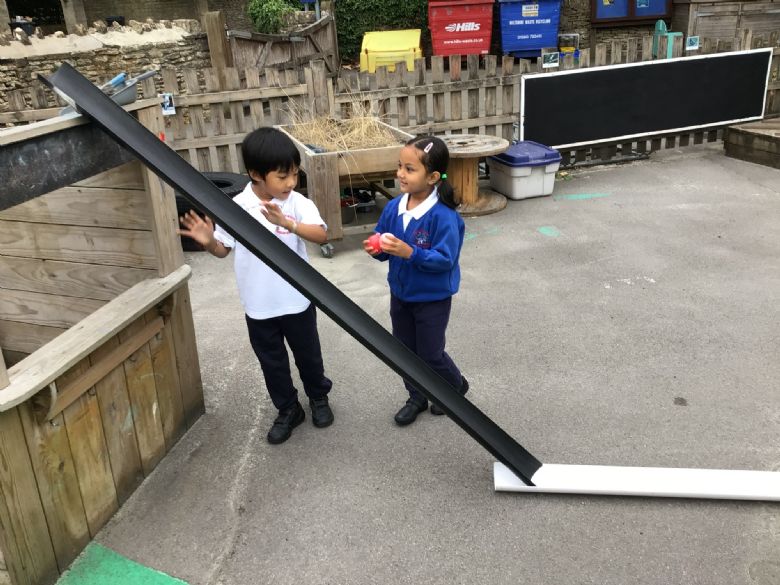
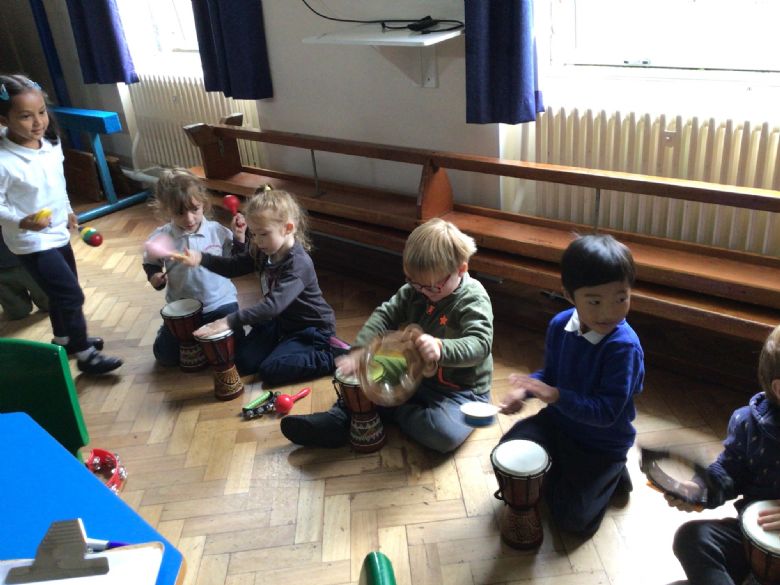
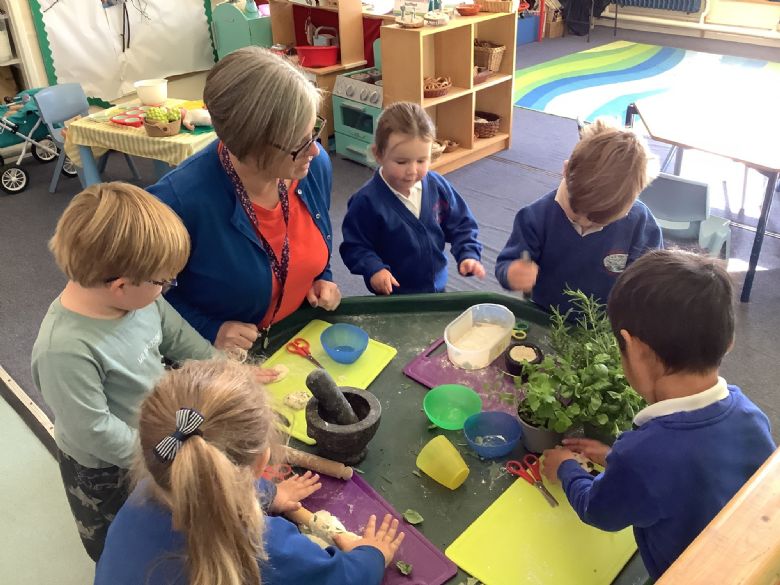
CLICK HERE for our Skills Progressions for Personal, Social and Emotional development
Children’s personal, social and emotional development is fundamental for their cognitive development.
The EYFS Curriculum at Stanton St Quintin endeavours to nurture and support children as they form new relationships, play and co-operate with others, become more independent and explore and manage their own emotions. Children are encouraged to set their own goals, take risks, have confidence in their own abilities and develop a positive sense of self.
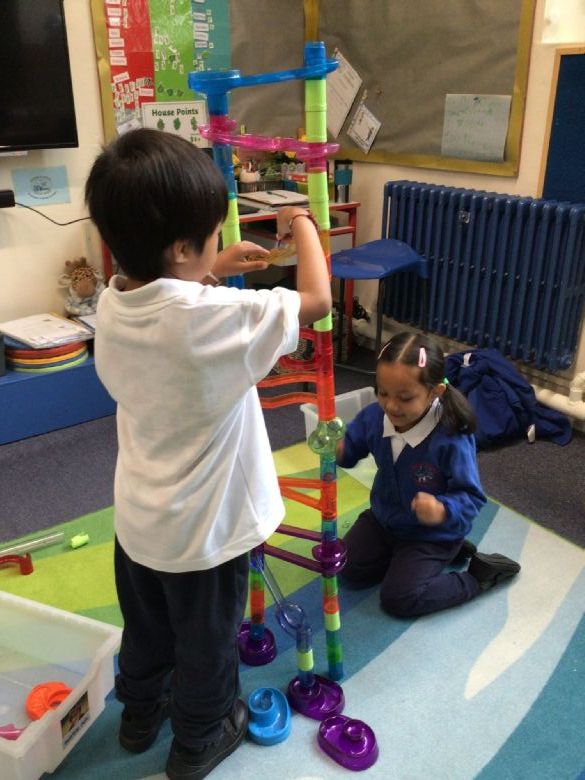
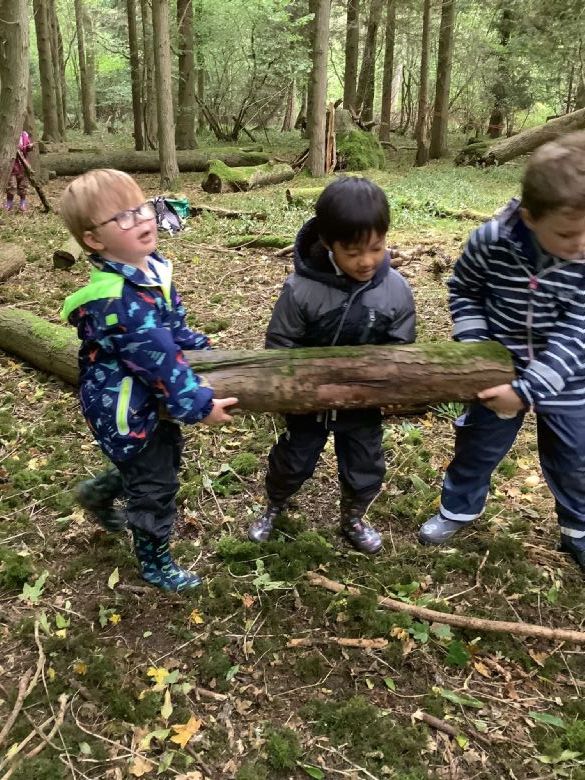
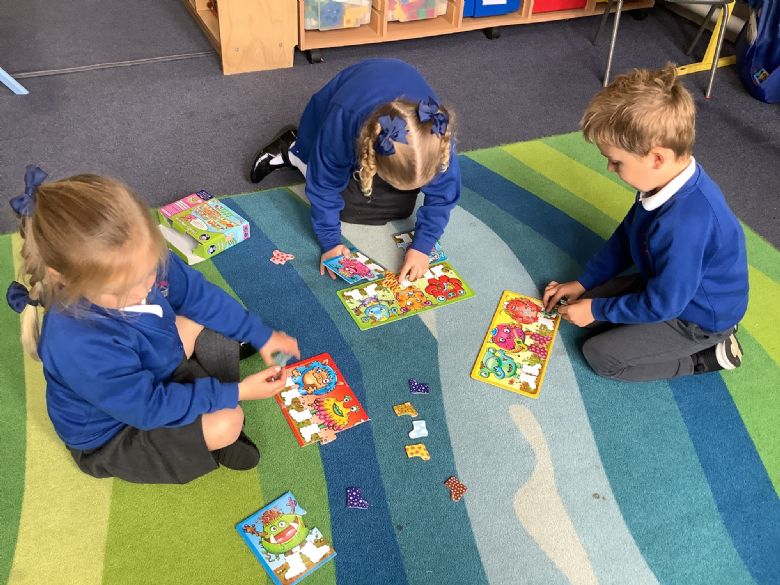
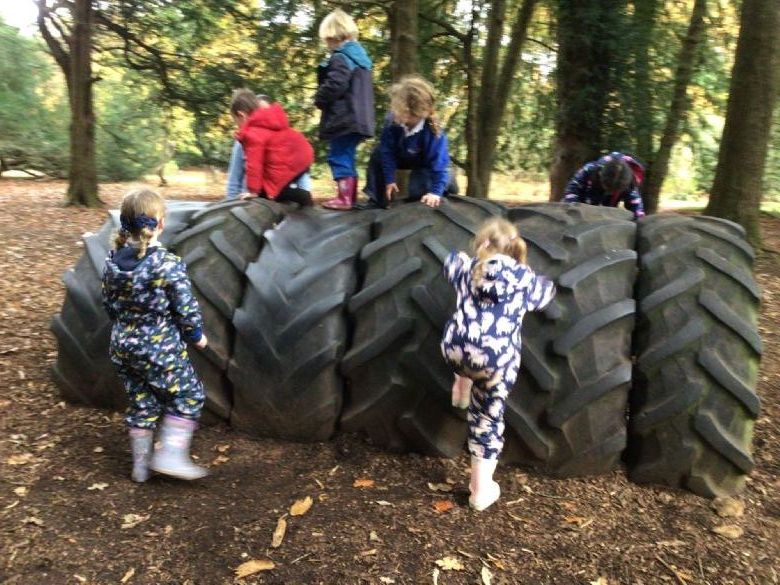
CLICK HERE for our Skills Progression in Physical Development
The EYFS Curriculum supports the development of children’s gross and fine motor skills. In addition to opportunities to develop physically in the environment, children in the early years at Stanton St Quintin receive weekly PE lessons. These lessons include balance bikes, ball skills, gymnastics and dance, focusing on core strength, stability, balance, spatial awareness, co-ordination and agility.
Building muscular movement also underpins writing and daily activities including dough disco, squiggle while you wiggle and woodwork are used to support children’s developing fine motor skills.
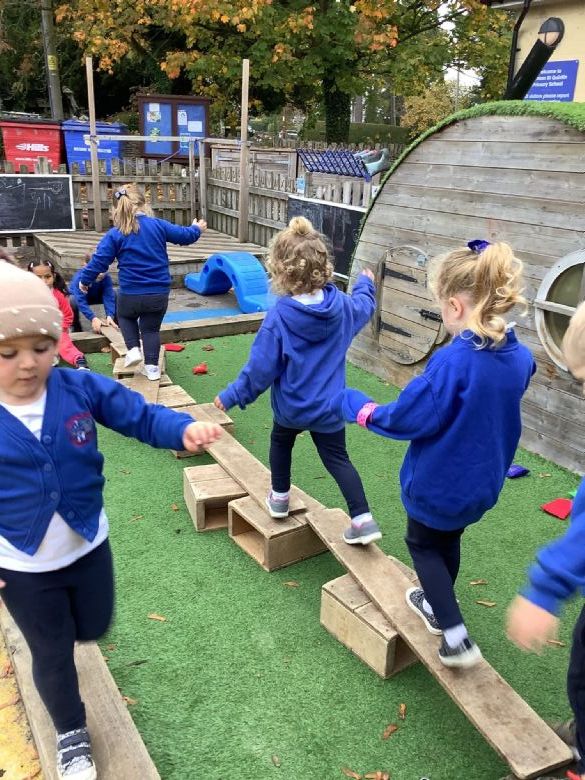
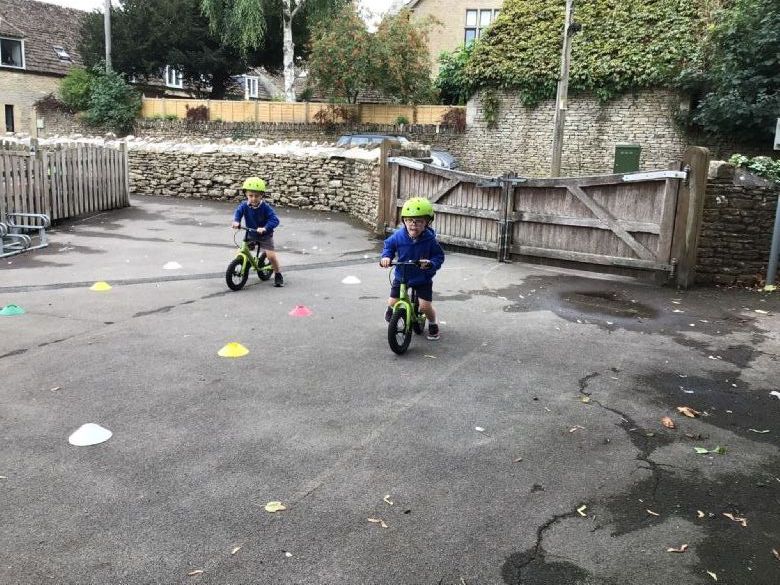
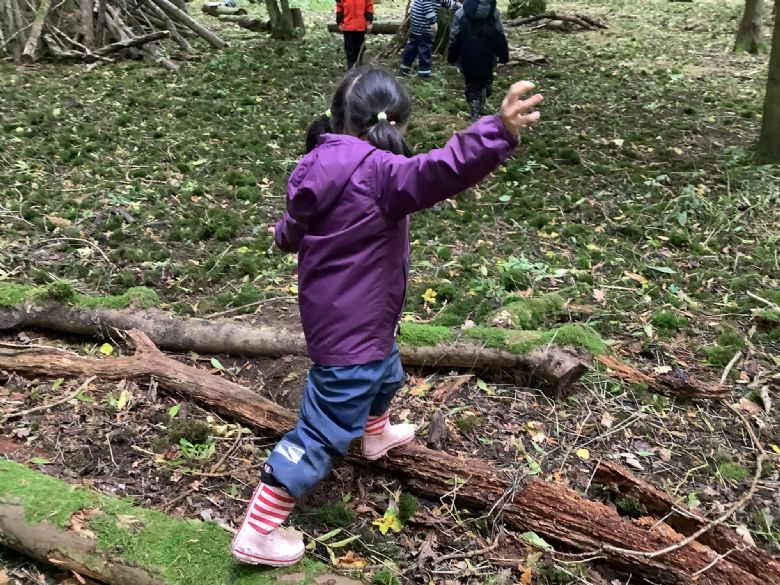
CLICK HERE for our Skills Progression for Literacy
Language, vocabulary and reading is at the heart of our curriculum, and it is our desire to nurture a love of reading in all children. We use good quality texts from a range of genres, including poetry, and encourage children to participate in story telling, thus developing their story language which will be used in their play, reading and writing. Children are encouraged to apply their mark-making and phonics skills in their writing and play.
Daily phonics teaching follows Letters and Sounds Phase 1 in Nursery and includes Squiggle While you Wiggle as a precursor to mark making and early writing. Phase 1 concentrates on developing children’s speaking and listening skills, getting children attuned to the sounds around them and ready to begin developing oral blending and segmenting skills. In Reception, children are taught using the Sounds Write scheme. They begin by learning the Initial Code, learning the single sounds and understanding the way the alphabet code works. This is then applied to sounding and blending to read and sounding and segmenting to spell.
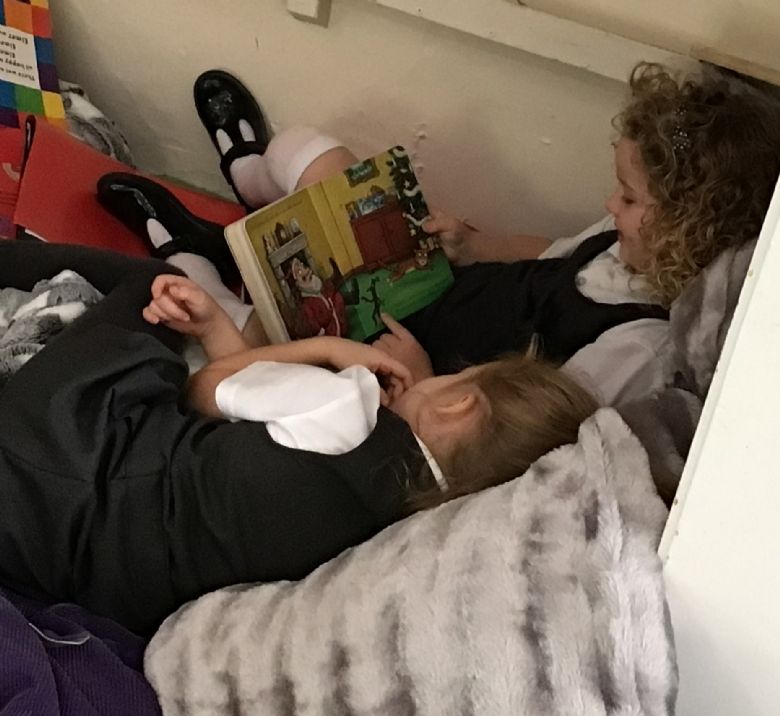
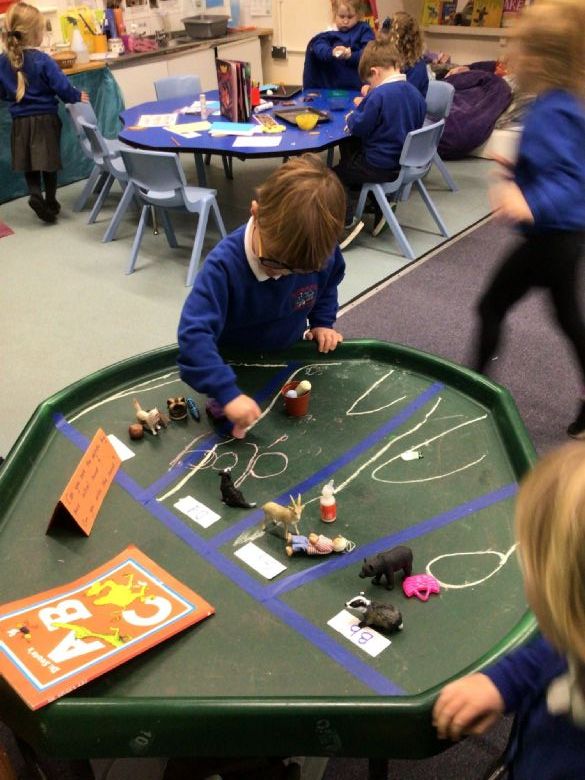
CLICK HERE for our Skills Progression in Mathematics
At Stanton St Quintin, daily direct teaching of mathematics is coupled with frequent opportunities for children to practise and consolidate their growing knowledge. Teaching of mathematical concepts is taught using concrete materials which is linked to visual and symbolic representation.
The curriculum focus is not on ‘big numbers’ but on developing a deep understanding of numbers to 10, the relationships between these numbers and the patterns within them.
A fun and interactive teaching and learning approach is used to spark children’s interest in mathematics and develop a positive attitude, where children are not afraid to make mistakes.
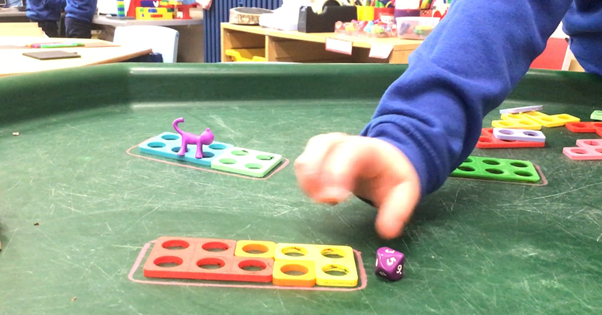
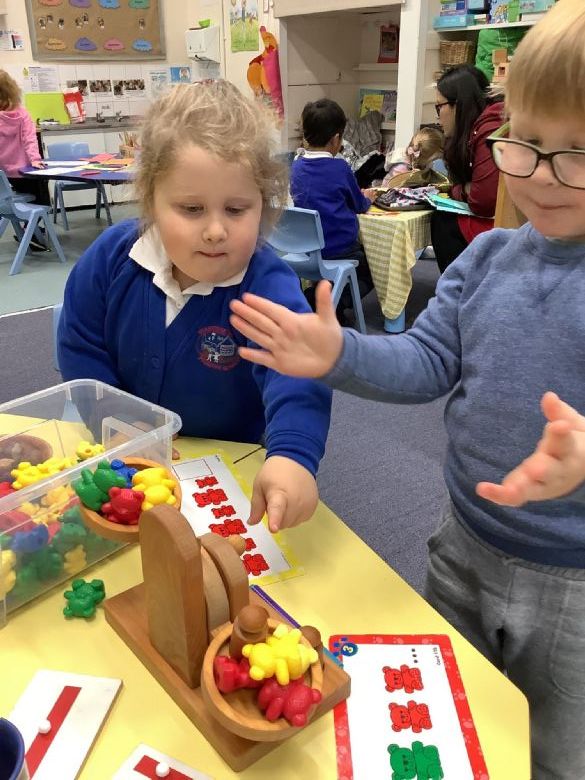
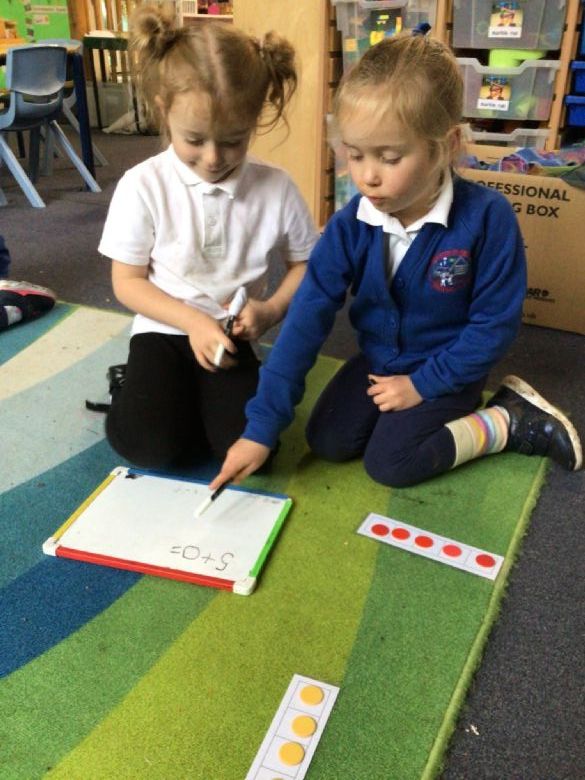
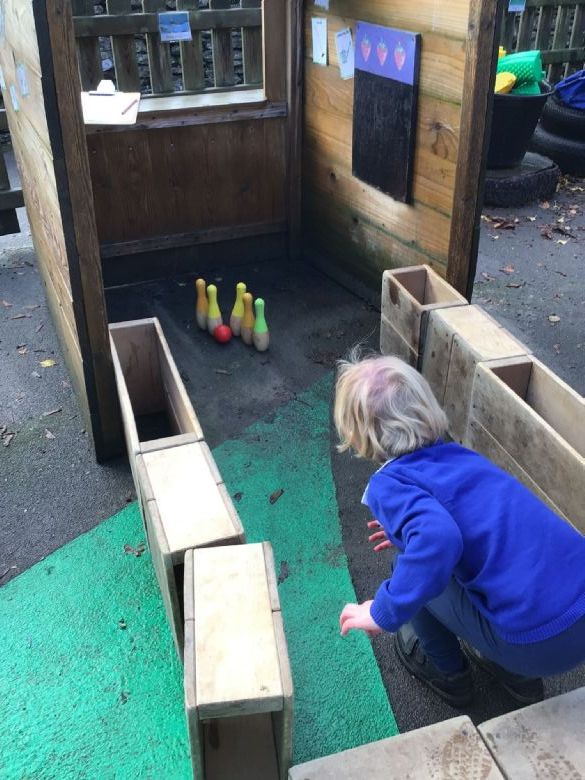
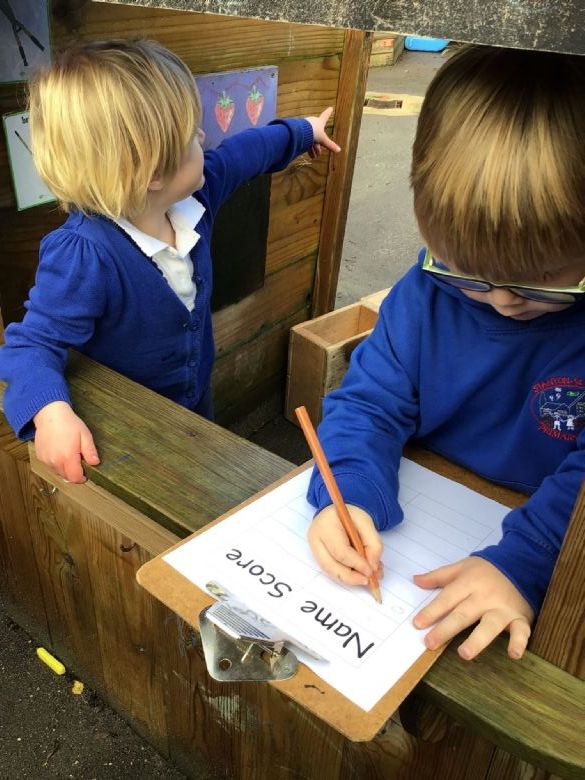
CLICK HERE for our Skills Progression of Understanding the World
The overarching themes in the Early Years at Stanton St Quintin follow the seasons and the natural world. We are very fortunate to provide access to a wonderful outdoor area, providing children with opportunities and experiences to explore their world, as well as the wider world around them, which helps them to understand and respond to the diverse world we live in.
We also take time to ensure that Darling Class are connected to the wider school community, taking part in whole-school events, having buddies in the older classes and sharing our learning with them.
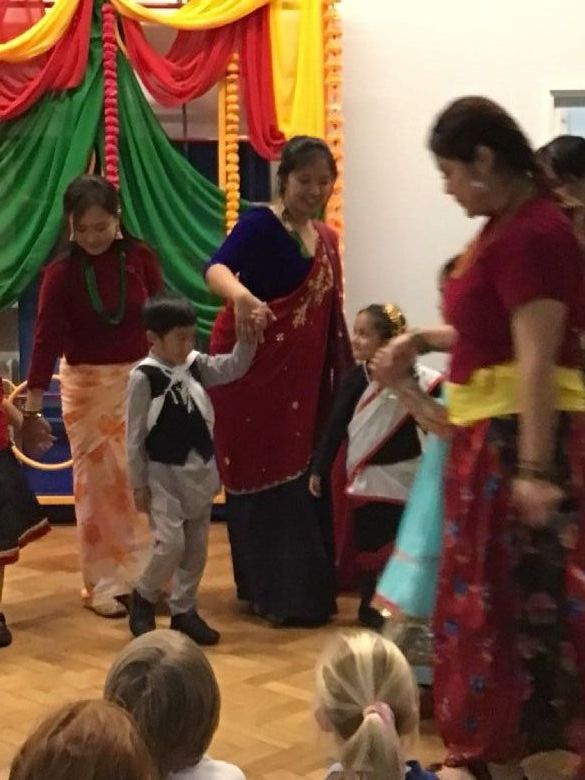
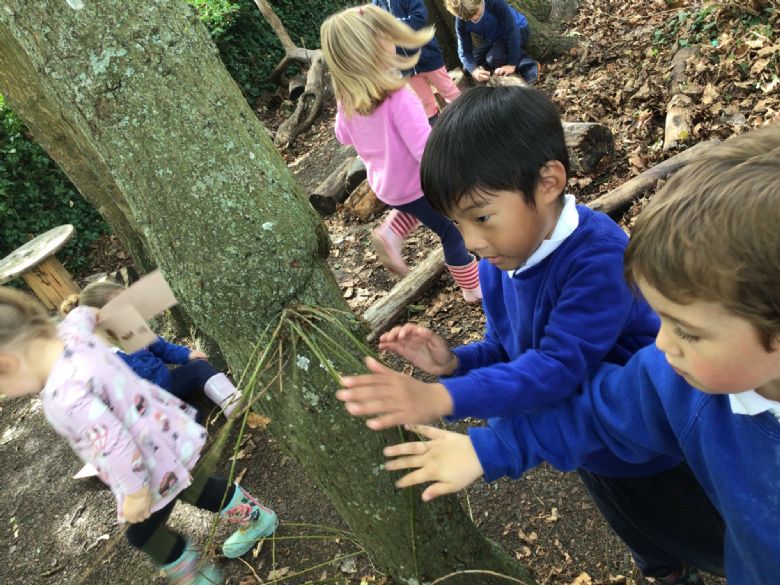
CLICK HERE for our Skills Progression for Expressive Art and Design
The development of children’s artistic and cultural awareness supports children’s imagination and creativity.
At Stanton St Quintin children are exposed to a wide range of media and materials and are given opportunities to explore, create and build on these experiences, looking to the world around them for inspiration.
